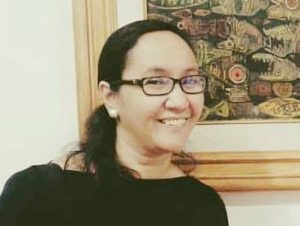Hope springing forth and the courage of individual survivors—indigenous peoples and Bangsamoro to speak out and share their experiences, the group was reminded on the third day of the Mindanao Survivors Solidary Assembly (MSSA) led by the Initiatives for International Dialogue (IID), that while there are shared pains and trauma as a people, each community has experienced the abuse and exploitation on varying degrees.
“Dili ta magkaparehas sa atong pagka ipit,” Datu Aquino Manial, an Arumanen-Manobo leader said. As Edith Mansayagan, another IP leader would raise, “daghan ang violation na nasinati pero kanunay natabunan.”
While human rights violation are rampant, the narratives of the IPs on the dispossession of their lands, rampant killings of their tribal leaders, of being caught between the skirmishes of rebels and of government troops and even of their ancestral domain being turned into military camps by the Moro Islamic Liberation Front (MILF), as in the case of Mt. Firis in Upi, Maguindanao remains on the sideline.
There is a national dementia and deliberate attempt to weave another narrative that does not give justice. The violation of human rights continues, but we are only beginning to listen to survivors from Malisbong in Palimbang, Sultan Kudarat who were massacred in 1974 as part of the pacification campaign of the Marcos government in Central Mindanao. Of these human rights transgressions, we have yet take into account those who were victimized by the Kampanyang Ahos of the CPP-NPA.
In the current timeline is on the Marawi crisis and the perpetual deafness of technocrats to include those who were affected by the conflict to be a part of its rehabilitation. “This is all about our identity as a people. Part of our dignity was lost because we were not part of its rehabilitation. In terms of our right to know, there was no information provided to us, most specifically on the 2,000 who remains unaccounted for,” Prof. Tirmizy Abdullah said.
“Why can’t we talk with the different communities and schools to educate the other members of the community on what has transpired, as part of our healing?,” Gilda Narciso, a martial law survivor said. These are but some of the stories of hope and resiliency, and of the continuing assertion for inclusion in current peace mechanisms.
These emerging perspectives and nuances have shown that the process of truth telling will provide the springboard towards accountability and healing. We digress from the truth and justice whenever we allow these voices to be sidelined by the elite. It is in our collective action and recognition of these voices that we can move forward to concretely respond and collectively work towards undoing the injustices around us, while making peace genuinely inclusive. Email comments to roledan@gmail.com


